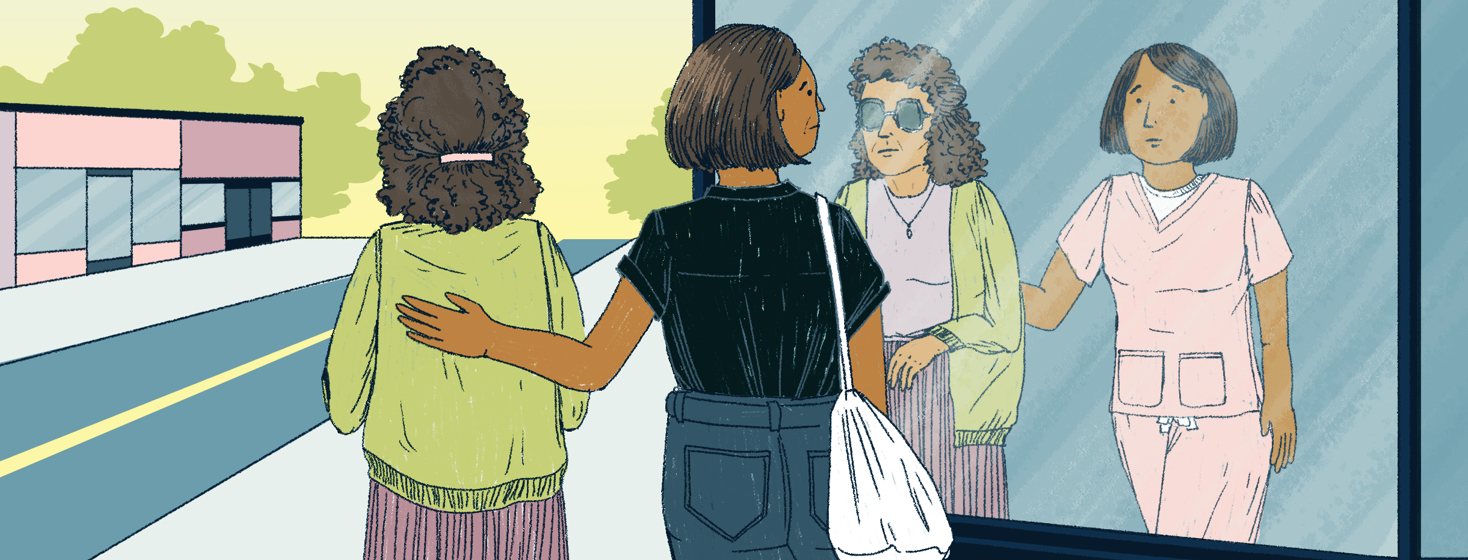Caregiver Perspective: Children Caregivers
Since multiple sclerosis often strikes in early adulthood, many times, the family unit includes children who mature into adulthood, watching their parents become progressively weakened by the disease. Such was the case in our family. Lynn had a ten-year-old son who lived with his ex-wife when we married in 1997.
Lynn’s son was a secondary caregiver
Lynn's diagnosis of multiple sclerosis occurred in 2006, and by 2011, his condition had progressed to the point of requiring the use of a power wheelchair. He and his son are very close, and his son became very vested in helping me with his father’s care. Until he went away to college, he often covered afternoons for me if I had to work late, or came to stay with his father if I had places I needed to go on the weekend. I taught him how to perform all his father’s care in case anything happened to me.
In hindsight, it was a significant burden to place upon one so young even though he willingly requested the assignment. He, like so many other children of persons with disabilities, felt not only love for his father but a duty and responsibility to care for him as his son.
Children act as caregivers in single-parent families
We often forget the child-caregiver when we speak about caregiver roles; however, in some single-parent households, the child is the primary caregiver for the parent. In many of these families, no other adult is available to support the family if the parent is too weak to fix meals or meet the needs of the family unit. In those circumstances, the oldest child assumes the role of the caregiver out of necessity.
Positive effects of caregiving on child
What is the effect on a child caregiver, whether they are in the primary or secondary caregiver position? I know firsthand that it has a dual effect. There are positive consequences that grow from the rewards of service and gratitude. If the care receiver appreciates the help received, the child develops an increased sense of self-worth, accomplishment, and self-respect. They develop pride in their work and feel good about taking care of their family.
Family dynamics change
However, not all care recipients appreciate the care received. The parent may be demanding, difficult to please, or harsh and abusive even depending on their medical status. As the disease progresses, the child may take on the role of parent for younger siblings, performing tasks usually completed by an adult to keep the family together and to care for the one who's disabled. With the role reversals, the family dynamics change, possibly creating conflicts between family members and certainly disturbing the natural order of family relationships.
School impact
Instead of participating in after-school sports events, the child rushes home to fix dinner. They may miss school a lot to stay home to care for their sick parent. Staying awake in the classroom may be a struggle due to late nights doing homework after completing caregiving responsibilities. Teachers may report a decline in grades, behavior, increased moodiness, and social isolation.
Methods to escape
In some situations, the child finds a way to escape their duties through drug use, running away from home, suicide, or early marriage. Each method represents a different means of removing themselves from the situation mentally or physically.
Harsh reality
Using a child as a caregiver sounds awful, but is there another solution? Realistically, in a single-family household, the child may be the only person available to provide help to the parent. It's a hard truth. Is it better than social services stepping in and removing children from families in a situation like this? Unless the child is suffering harm through emotional or physical abuse, I don’t personally think so, but help is needed.
Here are some ideas to consider:
- Parents: communicate with your children, letting them know they are not responsible for the care or well-being of the person with the disability. The adult in the family is still the responsible party.
- Answer the child's questions about the medical condition honestly. The child knows when something is happening that is not good news. Their imagination is worse than what you may need to tell them.
- Once you share the news, you don't need to dwell on it. Follow the child's lead. If they ask questions, answer them. Otherwise, go onto other topics of everyday life that the child wants to discuss and give them time to digest what they have heard.
- The adult who needs help should attempt to seek adult assistance and continue to strive to do as much themselves as possible so that the child sees the adult as reliable and available as a source of help. Try to limit the child's assistance to age-appropriate chores and have the adults who help do the other tasks.
- Remember, your child is still a child and needs special attention. When possible, try to attend those special events, but when you can't attend in person, establish an alternative means of participation such as getting someone to video it or watch it live over the phone.
Rewards
Childhood caregiving is stressful for the child and the parent. The parent feels guilt in needing the child to provide the care. The child feels inadequate in providing the care and guilty over wanting the freedom to be a kid. However, if you can overcome the guilt, a fantastic bond can form. The oneness between my husband and his son is beautiful to behold. They have shared a collective intimacy of pain and understanding through the caregiving experience that, in many ways, has united them as one. It's a beautiful thing to behold.

Join the conversation